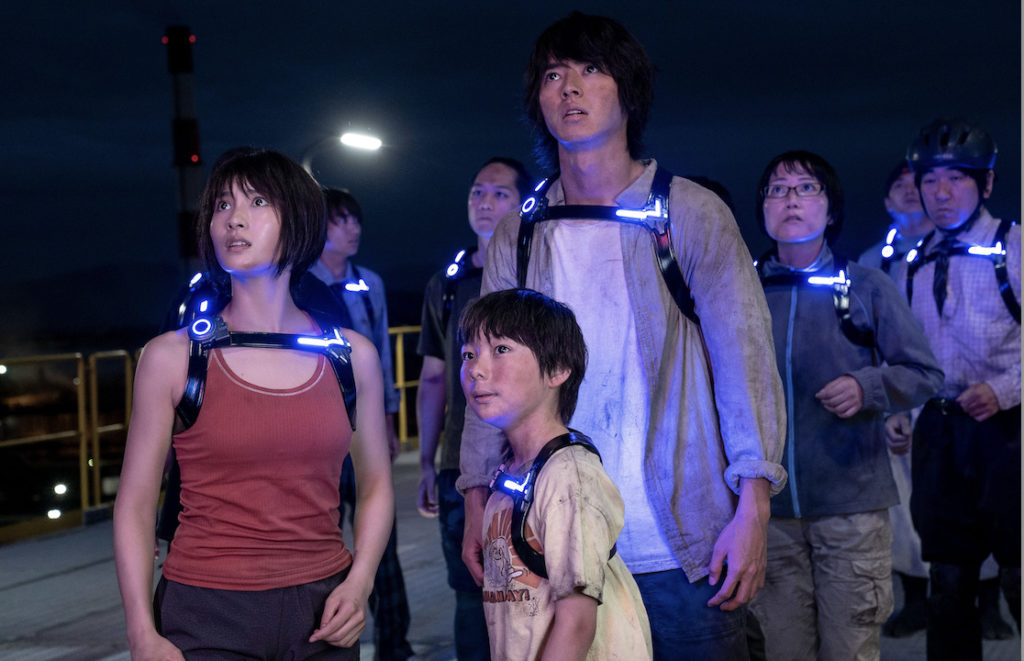
Sometimes the most fantastical sci-fi-driven dystopian stories can prove to be the most relatable to real-life modern society. That’s certainly the case with the new eight-episode second season of Netflix’s popular Japanese thriller series, Alice in Borderland.
The drama’s sophomore season was greenlit in January 2020, two weeks after its first season premiered. At the time, cities started to become barren and abandoned as the COVID-19 pandemic began to change how people interacted with each other. As a result, the underlying message of the show’s second season sparks debate over whether the old normal way of life was ever all that desirable to begin with.
Alice in Borderland is based on the manga of the same name by Haro Aso and published by Shogakukan. The series’ sophomore season was directed by Shinsuke Sato, who also wrote its episodes with Yasuko Kuramitsu.
Season 2 of Alice in Borderland picks up right where the initial season left off. Arisu (Kento Yamazaki) and Usagi (Tao Tsuchiya) continue chasing the mystery of the titular Borderland in their new alternate reality in order to return to their real world. They must stay alive by winning even more manipulative games that continue to pit players against each other and themselves.
Like in Season 1, each new game corresponds to specific face playing card in a deck in the thriller’s new episodes. The higher the stakes are in a game, the longer Arisu, Usagi and the other players who win remain alive afterward. The group must now win the games with the face cards, after they cleared the rest of the deck in the first season.

Along the way, Arisu and Usagi meet their friends, enemies and the mastermind behind the game at a place that seems to be the key to unlocking the show’s main mystery: when all the cards are collected, will they be able to return to their real world?
Like its predecessor, Alice in Borderland‘s second season thrives on the interweaving of its stunning, intricate visuals and complex character development. The drama’s latest eight episodes were once again shot by cinematographer Taro Kawazu, who also worked on the initial season.
The filmmaker highlighted the actors’ performances in the new episodes’ alluring locations, from the dazzling game rooms to the eerie abandoned nature of the buildings and streets of Tokyo, the most populous city in the real world, through sweeping wide shots. Kawazu alternated the drama’s wide shots with intimate close-up of the actors while they perform more intimate scenes, which emphasize their emotional arcs throughout the story.
Sato and Kuramitsu plunged the characters into more emotional turmoil throughout the show’s sophomore season. In the new episodes, the characters’ initial shock of their new circumstances begins to wear off, which leaves them to truly begin contemplating what kind of future they can have in the gaming world.
Tsuchiya gives one of the second season’s standout performances, as she naturally emphasizes Usagi’s hesitation to return to the real world. The character, who became close to Arisu during the first season’s last few episodes, admits to her new ally that she doesn’t understand everyone’s overwhelming desire to return to the way things were in their former lives before they became transported to the game world.

Usagi also emotionally reveals to Arisu that her previous normal wasn’t desirable. She admits that her father went missing and was presumed dead right before she was sent to their new reality, which left her devastated because they were so close.
The thriller’s second group of eight episodes also immediately separates some of the characters that Arisu and Usagi became acquainted with at the purported Beach utopia during its initial season. The sophomore season’s story jumps between the separated characters’ arcs, which makes the different stories feel balanced in their understated and cerebral nature versus their adrenaline-fueled, exciting disposition.
The profound balancing of the characters’ arcs is best highlighted with Chishiya (Nijirô Murakami), the mysterious blond, hooded player Arisu and Usagi met at the Beach. After he’s separated from Arisu and Usagi’s main group in the second season’s premiere, his intelligence is increasingly highlighted throughout the second season. That increase poses the question of whether he truly wants to help his new allies or only himself in the new episodes, after he proves to be untrustworthy in some instances in the first season.
Alice in Borderland‘s sophomore season continuously stresses how dreadful the characters’ new reality that they’re living in is. While the stunts in, and locations of, the games are brilliantly captured on screen by Kawazu’s cinematography, the games’ cruel nature ultimately spotlight the characters’ distinct situations, personalities and emotions. From Usagi’s hesitation to return to the real world, as she feels more capable of survival in the game world, to Chishiya using his wit in order to survive and defeat the game masters, the series’ newest episodes further develop the franchise’s mythology in a gratifying way.
All eight episodes of Alice in Borderland‘s second season are now streaming on Netflix.
Grade: B+
Check out more of Karen Benardello’s articles.
Here’s the trailer of the series.

